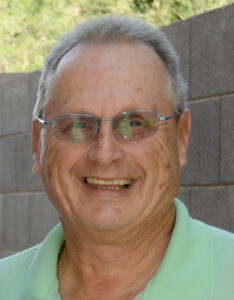
By Al Brandenburg
Last month I wrote about the need for a cemetery and internment services in Maricopa. This month we’ll address some things a bit more on the lighter side, especially with the holidays here.
The notion of how old you feel versus how old you really are has been attracting more attention from researchers and medical professionals. Recent studies have linked subjective age — the age that you feel – to a range of health outcomes, including depression, dementia and longevity. The findings: The younger you feel, the better off you may be.
Adults who feel younger report fewer chronic conditions than those who feel older. They also take fewer medications, visit the doctor less often and are more likely to maintain a normal weight, according to data collected from a large national study on health and wellbeing led by the University of Wisconsin.
Some people might feel younger if they go for a walk outside, or, if they can’t walk, if someone takes them in a wheelchair outside, according to recent research. You might feel younger if you play a card game or an activity you did when you were younger. It’s a matter of finding what you enjoy and, if you have to adapt it, figure out a way to do so.
There are tons of things for seniors to do in Maricopa from the various gyms in town to golf and myriad people playing card games. Soon we will have an operating senior center with all kinds of activities to keep you thinking younger.
Research companies are working on medications that slow the process of aging. One of these that show promise in humans is RTB101, a drug developed by a Boston-based biotech company.
Here are readily available things that are proven to slow down aging:
Fruits and vegetables. There are more than 20,000 different phytonutrients in fruits and vegetables, and each has a unique role in fighting age-related damage to our bodies.
Lean protein. Studies have shown that people hold on to muscle better if they eat enough protein — at least 25 to 30 grams per meal.
Strength training. This can help improve metabolism and mobility by maintaining muscle.
Aerobic exercise. Walk, run, bike — move for a minimum of 30 minutes, five times a week.
Sunscreen and shades. They help reduce the sun exposure that activates free radicals and damages DNA.
Weight loss. Losing extra pounds, especially around the midsection, can help reduce inflammation.
Vacations. Offset chronic stress, which speeds aging by producing inflammation, by taking breaks. For acute stress, such as grief, counseling may help.
I wish my readers a healthy and safe holiday season. For your New Year’s resolution, vow to think younger and do something to keep you that way.
Al Brandenburg is a founder of Maricopa Senior Coalition.
Sources: American Institute on Aging, Medicine Net, US News.com, AARP.
This column appears in the December issue of InMaricopa.

![Senior Info/Expo draws hundreds Clinical Liason Elaina Young of Compassus Hospice and Palliative Care speaks with an attendee at the Senior Info/Expo at the Maricopa Library and Cultural Center on Jan. 20, 2024. [Monica D. Spencer]](https://www.inmaricopa.com/wp-content/uploads/2024/01/spencer-012024-senior-info-expo-web-01-218x150.jpg)




![He has the power: Weightlifter doesn’t let age or others’ opinions stand in his way Mack Hodges. [Bryan Mordt]](https://www.inmaricopa.com/wp-content/uploads/2023/08/BCM_8517-scaled-e1690992804625-218x150.jpg)








![Alleged car thief released without charges Phoenix police stop a stolen vehicle on April 20, 2024. [Facebook]](https://www.inmaricopa.com/wp-content/uploads/2024/04/IMG_5040-100x70.jpg)
![Locals find zen with Earth Day drum circle Lizz Fiedorczyk instructs a drum circle at Maricopa Community Center April 22, 2024. [Brian Petersheim Jr.]](https://www.inmaricopa.com/wp-content/uploads/2024/04/PJ_3922-Enhanced-NR-100x70.jpg)
